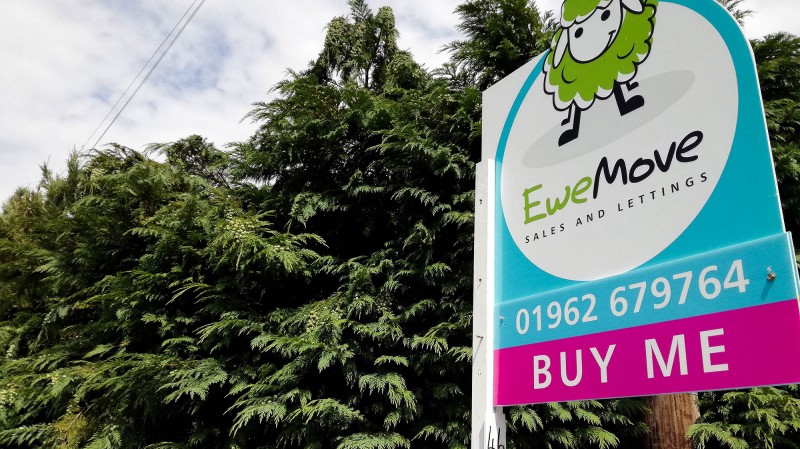You are here: What is a Radon Gas search and why is it important?
Every building contains radon, but the levels are usually low. Elevated levels are mostly found in South West and North West England. In order to avoid potentially serious health risks when buying property, the radon risk must be assessed.
Radon is a radioactive gas you can’t see, smell or taste that comes from the rocks and soil found everywhere in the UK. The level in the air we breathe outside is very low but can be higher inside buildings because they naturally draw air in from the ground through cracks and gaps in the floors.
At its highest level, radon can cause lung cancer, particularly in smokers and ex-smokers. It produces tiny radioactive particles in the air that damage our lung tissue.
If you are considering buying a property in South West England, Scotland, Derbyshire or Northamptonshire, levels of radon are considered high risk and further investigations should definitely be made.

Are they mandatory?
Yes, but the required information on whether the property is in a radon affected area is contained within question 3.14 of the Local Authority Search, CON 29. If it is, your conveyancing professional will request radon measurements that have been made within the property, from the seller.
If none are available, the seller can easily purchase a testing kit for around £50. However, it can take between 3-6 months to get results. Short-term screening tests where detectors are left in place for 10 days are also available but obviously not as accurate.
Even if your dream property is in a high-level radon area, all is not lost. Your property professional will probably advise managing the risk by way of a retention from the sale proceedings or ‘radon bond’. If the test results are below the risk level, the money is paid to the seller. If not, the money is used to carry out work required to make the property safe.
And, if your property was built after 1990 it is more more likely to have precautions in place to stop the gas from entering the house in the first place.
When are they ordered?
As with all the other searches we have covered, they should be ordered as soon as you appoint your conveyancing solicitor. Ordering quickly is especially important if the property is within a high-risk radon area as you need to leave as much time as possible for any necessary test results to come back. As a minimum you should also order Land Registry and Local Searches, Water and Drainage Searches, an Environmental Search and a Flood Search (see previous articles). Other searches (depending on where the property is in the country) include Ground Stability, Tin, Bath Stone, Coal and Brine, China and Ball Clay, and Canal and Rivers Trust
One of the first things your conveyancer will do is ask you for money ‘on account’ in order to pay for these searches.
Are there different types?
Yes, one that is produced by the local authority themselves and one that is provided by a specialist search company who make the necessary enquiries of the local authority.
Council Searches
These used to be called Official Searches and are provided by the Local Authority, carried out by their employees. They vary in price and turnaround time as each authority sets its own pricing and processes. Some are more automated than others. Once the search process is complete the document is sent to your solicitor.
Regulated Searches
Previously called Personal Searches, these are undertaken by specialist search companies registered with the Property Codes Compliance Board (PCCB) ensuring a consistent quality level. They also have run off insurance cover, so they’re covered even if the company goes bust, and a redress scheme: The Property Ombudsman.
What do they tell you?
Local Searches are split in to two parts:
- LLC1
- Con29
The question relevant to radon gas is in the second section, the Con29.
What do they cost?
For an initial idea of potential risk, Public Health England provides a map showing where high levels are more likely. In the darkest coloured areas, the chance of a higher level of radon impacts more than one in three homes.
The cost of a Local Search (which is mandatory), which will tell you more accurately whether your property is in a high-risk area, depends on the location of your house and whether you’re buying a council or a regulated search.
The price of Council Searches can vary wildly. At the time of writing there are 343 local authorities in England and Wales and costs range from £30 to £300
If your conveyancing professional is ordering a Regulated Search (see above) the price is more likely to be fixed because the companies providing these are national and they have more control over the pricing.
How long do they last?
When acting on a conveyance, your solicitor must follow The UK Finance Mortgage Lender’s Handbook, it says that searches must be no more than 6 months old on completion.
If you are thinking of buying or selling your home, you may find some of these services useful:
Conveyancing
Get instant estimates from Conveyancers and Solicitors in your local area
Mortgage Brokers
I need help getting a mortgage
Estate Agent
Find a local Estate Agent
Valuation Surveys
If you need a Valuation Survey
Building Surveys
I want a local surveyor to do a Building Survey for me
Removals
I want to find a removal company
Energy Performance Certificate
Energy Performance Certificates